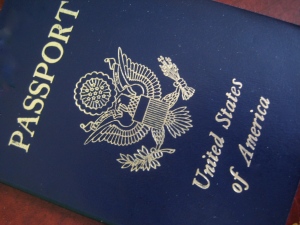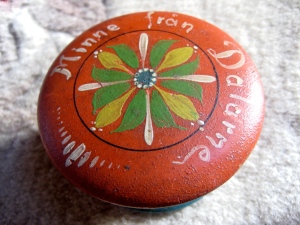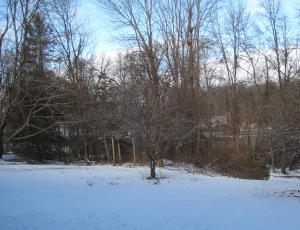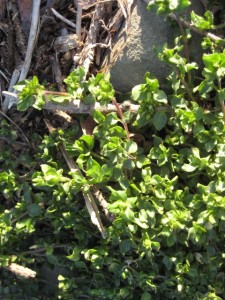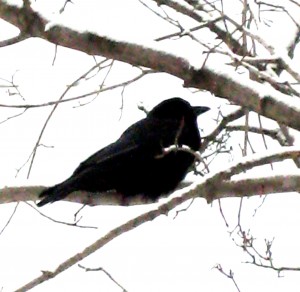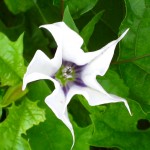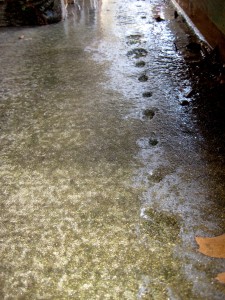
– Photo by Jan Ketchel
The rational sensibility of the modern world observes the deterioration of the brain with Alzheimer’s disease and questions the validity of the soul. In effect, it asks the question, “What is left to ascend after death, when clearly there appears to be a total dismantling of the personality as the disease progresses?”
All religious systems, nonetheless, propose that a soul, an ethereal essence, separates from the body and continues to live after death. Hindu scientists have an elaborate understanding of the composition of that soul, or what they have termed the astral body. According to their findings, our abilities to think and feel originate in the astral body. The astral body, or soul, is intimately connected with the physical body; feelings are experienced in physical sensations and mental processes are connected with the brain. These two bodies, physical and astral, are inseparable except in dreaming, shamanic journeying, and in severe trauma, when the astral body—though still attached to the physical body—separates and goes off on its own journey.
Shamans utilize dreaming and journeying to explore life beyond the body, as they prepare for life after death, for the moment when the astral body completely separates from the physical body.
The Tibetan Buddhists, as outlined in The Tibetan Book of Living and Dying, have identified several bardos, or in-between worlds, that all humans encounter shortly after death. In the bardos we are all confronted with unresolved issues from our lives. Our ability to resolve, or not attach to these issues in the bardo states allows us to progress deeper into our soul’s unfolding journey in infinity. However, this cosmic recapitulation process in the bardos may require many lifetimes before we achieve true freedom. Alzheimer’s, as I see it, is the beginning of that cosmic bardo adventure, begun while still living in the human body, offering the opportunity to engage in recapitulation.
With the deterioration of the brain during Alzheimer’s, the astral body is freed to enter the bardos and deal with deep issues, as it is freed of engagement in the affairs of daily life. Deterioration of personality in this world in no way reflects loss of self, it simply reflects a breakdown of cognitive functioning connected to the physical body.
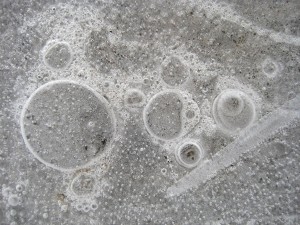
– Photo by Jan Ketchel
The mental and emotional self is fully present in its astral travels and is deeply engaged in working through karmic issues with souls from other lives, as well as those who have already crossed over, whom one was associated with in this life. Alzheimer’s offers an individual an extended opportunity, while still in human form, to resolve issues of many lives, with the added benefit of possibly breezing through the bardos after real death, moving quickly into higher spiritual realms. What appears in physical form as a difficult to manage and heartbreaking pathological disease, in spiritual form is actually an opportunity for great healing and advancement.
Relatives of Alzheimer’s patients are often treated to stories of these adventures in the bardos when the Alzheimer’s traveler is in lucid moments. He or she may speak of adventures with relatives and other beings in the astral realm. And, yes, some of those encounters with entities in the bardos realm can be quite terrifying, as patients might report their terror at feeling robbed or attacked, or having met evil or monstrous beings.
Nonetheless, if we can value their experiences as coming from layers of reality that we are unable to witness, rather than simply dismissing them as hallucinations, we might be granted glimpses of life beyond life. Not only are we offered valuable insight into what we will all one day encounter as we enter the bardos ourselves, but we are able to support our loved ones as they deepen their soul’s journey in infinity, preparing for their final launching.
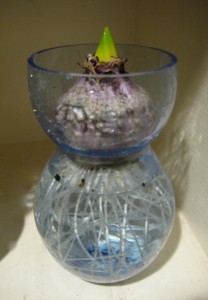
– Photo by Jan Ketchel
Looking at Alzheimer’s from a different perspective,
Chuck
I wish to thank Elmer Green, PhD, brain researcher and pioneer of biofeedback, for his insight into Alzheimer’s as he took the journey with his wife, Alyce, learning what she was encountering on her trips into the bardos. You can hear him talk about it here: The Ozawkie Book of the Dead He mentions his findings about Alzheimer’s within the first few minutes and goes into it in greater detail throughout the recording. It’s well worth listening to!

